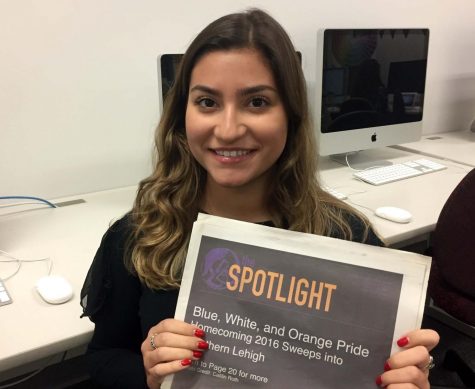Lehigh Valley Residents Raise Awareness for Local Sex Trafficking
The U.S. Department of Homeland Security defines sex trafficking as a “modern day form of slavery involving the illegal trade of people for exploitation or emotional gain.” While many people know that young women across the country in large cities face sexual exploitation and trafficking, Lehigh Valley residents might be surprised to hear that it’s happening right here in their own backyards.
Does sex trafficking really happen in the Lehigh Valley?
In January, authorities arrested 19 people in a large-scale prostitution sting at a hotel in Stroudsburg, Monroe County, who faced charges related to human sex trafficking, prostitution, and the sale of heroin. Two women were identified as victims. In February 2016, an Allentown man was found guilty of sex trafficking in city motels.
Local organizations like Truth for Women (a confidential, secure safe house for trafficking victims) and Valley Against Sex Trafficking (VAST) are fervently working to raise awareness; help victims recover from emotional and physical trauma; and provide victims with psychiatric rehabilitation, drug or alcohol detox and rehabilitation, a proper education, support groups, trauma therapy, and education on basic life and job skills.
According to executive director of Truth for Women and former Southern Lehigh girls’ lacrosse coach Kim Checkeye, sex trafficking in the Lehigh Valley occurs mostly on readily accessible advertising websites and in hotels.
“It’s so well hidden here,” Checkeye said. “There’s really no way people would think that it could happen in our little area.”
“[The Lehigh Valley] has easy access to major highways. In addition, many sex buyers come from the suburbs,” co-founder of VAST and licensed clinical social worker Heather Evans said. “They have the money to pay for sex, because they may have higher education or higher paying jobs. Anywhere that there is a demand for sex, there will be sex trafficking. It knows no bounds.”
Who do sex traffickers target?
“They’re looking for women who have low self esteem and women who have been abused. It’s almost like they have a sixth sense. One of the first trafficking victims that I worked with, her trafficker’s family business was trafficking,” Checkeye said. “Since he was a little boy, he was trained how to be a trafficker; he watched pornography, he was taught how to manipulate and abuse a woman, he knew what to look for. You could put him in a room of 300 women, and he would be able to pick out one who was sexually abused.”
Women who suffered sexual abuse during childhood, homeless women, and runaways are among the most vulnerable targets. But, says Checkeye, it could be anyone, even any girl at Southern Lehigh.
How do traffickers do it?
One of the ways that traffickers connect with women is through social media. They may begin to build a relationship with their victim and slowly begin to manipulate her.
“A trafficker uses kindness, trust, protection, affection, gifts, promises to lure, deceive and ensnare a vulnerable individual,” Evans said. “They make promises to protect them, take care of them. They tell them that no one else can love them the way they do. They eventually have sex with them. At some point, they force them to work as a prostitute, a porn star, or a stripper or dancer.”
“He’s very persistent, and he’s very patient, because he knows that the price tag on her head is huge,” Checkeye said.
Additionally, gangs view sex trafficking as a lucrative business.
“If you’re selling guns or you’re selling drugs, you can sell them only one time,” Checkeye said, “however, if you’re selling a woman or a little girl, you can sell them multiple times.”
Nevertheless, trafficking can be unpredictable. Checkeye also recalls meeting women who were sold at the ages of two, four, or five to pedophiles and pimps by their families for drugs or alcohol.
What are some warning signs of sex trafficking?
“If someone is being sexually trafficked, you may notice changes in behavior that show some form of control by another individual,” Evans said. “For a high school student, you may notice changes in behavior or friend association, decrease in school attendance or participation in after-school activities, extreme changes in dress, or having name brand items, hair, nails, and makeup.”
According to Checkeye, some indicators of a brothel may include seeing a car pull up somewhere with multiple women and leave with multiple women, seeing used mattresses in dumpsters nearby, or seeing only men come in and out of a “spa” or “massage parlor.”
“The hardest part is that there are trafficking victims all around us, and we will have no idea because they look like everyone else. So many times we think a prostitute is the short skirt, the red lipstick, the sleazy-looking shirt, and the high heels, and that’s really not the case,” Checkeye said. “When she meets up with a guy who’s paying for sex, she knows she has to figure out whether he’s a cop or not. Her showing up in some scanty outfits won’t be good, so she’s coming in a normal pair of jeans and a tee shirt. She’s not dressed the way that we think she’d be dressed; she looks like every other woman.”
What happens to the people involved after a victim is identified?
“If the women are willing to testify against [the trafficker], then a case is put against him, he goes before a jury, and he goes to jail,” Checkeye said. “However, often times they won’t [testify] because of the trauma bond [a deep emotional attachment to one’s abuser due to manipulation and a normalized, repetitive cycle of abuse] that they have, and or because they can’t face that trafficker in court after all they’ve been through.”
According to Checkeye, it is extremely difficult for the police to build a case against the actual trafficker, and when they do, it often takes one, two, even three years to fully develop. The traffickers know how to cover their tracks and manipulate the women into protecting them.
“They have the girls call them ‘Daddy,’ so they train them that you don’t get ‘Daddy’ in trouble. When [the girls] are arrested, most of the time the traffickers won’t even post bond because they don’t wanna get on [the police’s] radar,” Checkeye said. “Also, a lot of times they have an older prostitute who they’ve have had for many years control all the other women and act as the ‘pimp,’ so if they get caught, he can say, ‘I had no idea she was doing that.’”
As for the men who pay for the sex (referred to as “johns”), there is no jail time. In Pennsylvania specifically, punishment may include fines, auto seizure, community service, or attending an educational program called “john school” that addresses the harsh realities of prostitution and sex trafficking. However, failure to sentence johns to prison can be a problem, as a promise of jail time for sex buyers may deter potential buyers from seeking out prostitutes. This, in turn, would eliminate the market for commercial sex, thus eliminating sex trafficking.
“This is a major issue. We have a crime where a victim may actually be punished more severely than the buyer of that victim,” Evans said. “Our Pennsylvania law on sex trafficking, Act 105, actually defines a buyer of sex trafficking as a trafficker because they are participating in the trafficking. We have more work to do in education and advocacy to utilize the strength of this law, in hopes that it will further deter buying sex.”
How can the community help raise awareness and stay safe?
“If I could say anything to teenage girls, it would be, please be careful on social media,” Checkeye said. “Not everybody is who they say they are.”
“I would say the best thing women can do to protect themselves is to be educated about the ways traffickers work. A lot of the time women are being trafficked by men they know, so if you ever feel like something doesn’t sound right or feel right, trust your instincts,” Checkeye’s daughter, senior Hannah Checkeye said.
According to VAST, 76 percent of underage victims of sex trafficking were recruited online. Stay safe when using social media. It is important to remain cautious and maximize privacy.
“This crime exists because we are a culture that tolerates it. Speak out against aspects of our sexualized culture that are like fuel for sex trafficking, including pornography,” Evans said. “As long as there is a demand for sex, there will be victims of sex trafficking. Explain the exploitation that is involved with girls and women in strip clubs, massage parlors, pornography or prostitution. Speak out against the glamorization of pimps in our culture.”
“People need to become more aware and spread the message. Realize that it’s happening in the Lehigh Valley, and that it’s not just like, ‘Oh, this doesn’t happen here,’” Checkeye’s younger daughter, sophomore Lizzie Checkeye said.
If you suspect a possible trafficking situation, call the National Trafficking Hotline at 1-888-3737-888 or text befree. For volunteering opportunities and more information about sex trafficking in the Lehigh Valley, visit vast.ngo or truthforwomen.org.

Senior Sarah Trebicka is a four-year staff reporter and former two-year Our World editor, now serving as editor-in-chief for the Spotlight. In addition...


